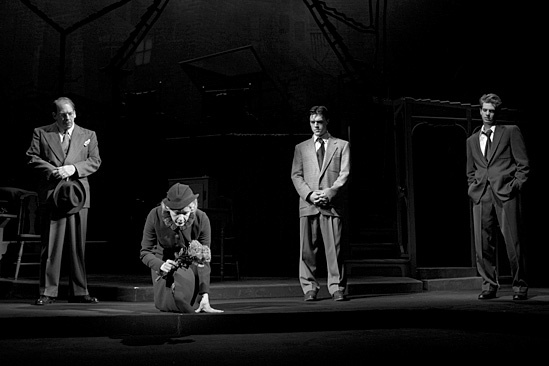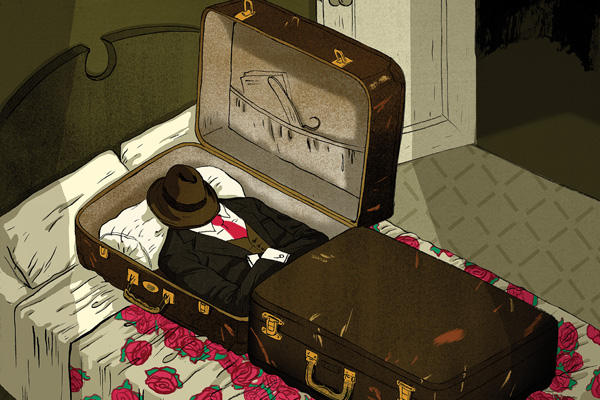

Ben, on the other hand, represents Willy’s dreams of financial success through ruthless strength: “The man knew what he wanted and went out and got it.” (Miller 1540). The house, appliances, cars and insurance prove that Willy has achieved the necessary social status in a society which confuses a facade for substance.
-rsc_158479.tmb-gal-670.jpg)

Ironically, Willy assures Linda that she is his “foundation and support,” and to a large extent she is, for her existence testifies to Willy’s domestic success. His quick acquiescence to Linda’s position reveals that Linda functions primarily as an echo of Willy’s own position she embodies his need for security even at the price of mediocrity. Willy, however, chooses to remember that it was Linda who persuaded him to remain a salesman, but we have only his rationalizing memories of the event. “Willy’s plea for loyalty and humane treatment–“you can’t eat the orange and throw the peel away–a man is not a piece of fruit!” (Miller 1545). Willy’s expectations are based on ideals of prosperity and wealth, money and high social position. The American dream means the perfect world out there somewhere. Willy’s dream is the American dream of success. Willy perceives himself as a successful businessman who has reached social recognition and achieves his dream. This scene shows that treatment of Willy by his boss doffers greatly from his dreams and expectations. It is the play’s most blatantly anti-business scene: “it’s a business, kid,” young Howard explains to old Willy just before he sacks him, “and everybody’s gotta pull his own weight.” (Miller 1544). This is a critical moment in Willy’s life, as he goes in to plead for a New York job after spending thirty-four years on the road. Miller gives a special attention to the scene when Willy is fired. Thus, Miller underlines his negative attitude towards Willy and his achievements. In the first place, Willy’s employer, Howard, is not presented as a negative character but as a man very like Willy himself, with the same narrow love for his family, the same love of gadgetry, the same empty friendliness. Willy is treated by the company and Howard Wagner as a common old-aged employee who lost his chance to reach career growth and opportunities.


 0 kommentar(er)
0 kommentar(er)
